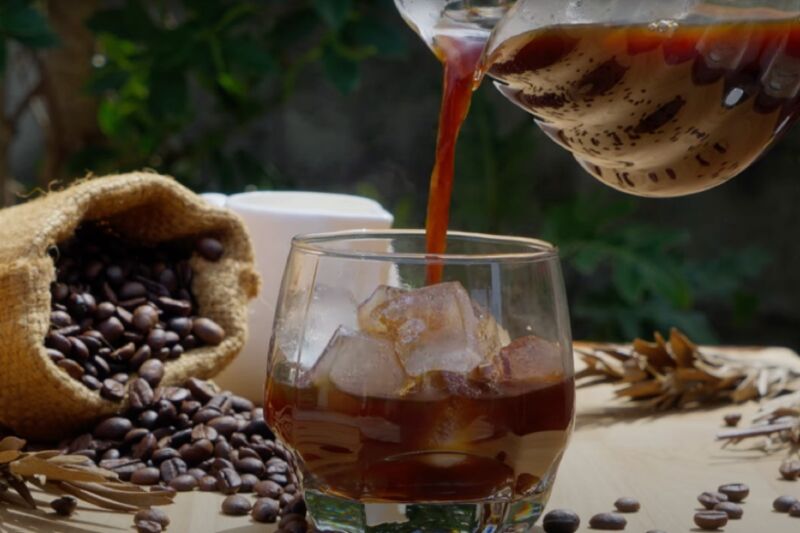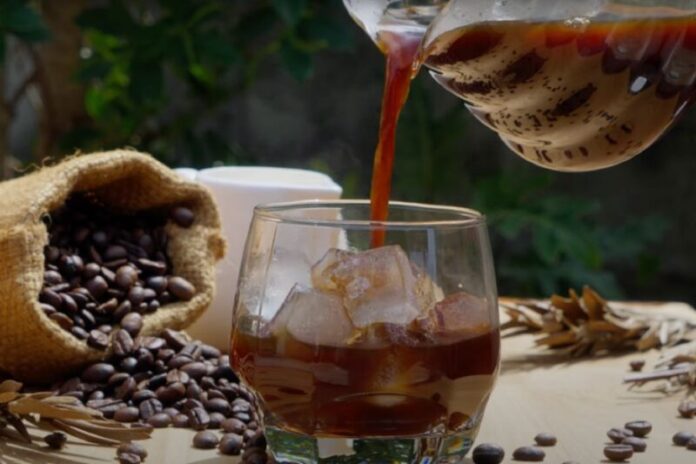
Enlarge / UNSW Sydney engineers developed a new way to make cold brew coffee in under three minutes without sacrificing taste. (credit: University of New South Wales, Sydney)
Diehard fans of cold-brew coffee put in a lot of time and effort for their preferred caffeinated beverage. But engineers at the University of New South Wales, Sydney, figured out a nifty hack. They rejiggered an existing espresso machine to accommodate an ultrasonic transducer to administer ultrasonic pulses, thereby reducing the brewing time from 12 to 24 hours to just under three minutes, according to a new paper published in the journal Ultrasonics Sonochemistry.
As previously reported, rather than pouring boiling or near-boiling water over coffee grounds and steeping for a few minutes, the cold-brew method involves mixing coffee grounds with room-temperature water and letting the mixture steep for anywhere from several hours to two days. Then it is strained through a sieve to filter out all the sludge-like solids, followed by filtering. This can be done at home in a Mason jar, or you can get fancy and use a French press or a more elaborate Toddy system. It's not necessarily served cold (although it can be)—just brewed cold.
The result is coffee that tastes less bitter than traditionally brewed coffee. “There’s nothing like it,” co-author Francisco Trujillo of UNSW Sydney told New Scientist. “The flavor is nice, the aroma is nice and the mouthfeel is more viscous and there’s less bitterness than a regular espresso shot. And it has a level of acidity that people seem to like. It’s now my favorite way to drink coffee.”
Read 12 remaining paragraphs | Comments
Ars Technica - All contentContinue reading/original-link]




